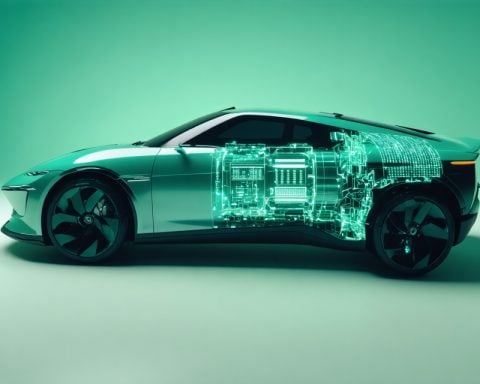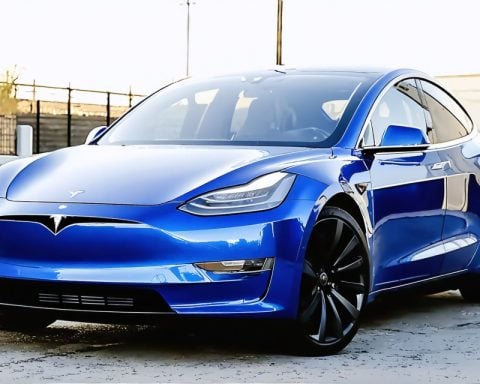- China is transforming its car industry through significant advancements in autonomous vehicle technology.
- State-backed investments are propelling companies like Baidu, NIO, and Xpeng to the forefront of producing smart, fully autonomous vehicles.
- Testing of Level 4 and Level 5 autonomous vehicles is underway, aiming to redefine urban mobility and the driving experience.
- Integration of AI and 5G infrastructure is enhancing vehicle connectivity, communication, and adaptation to traffic conditions.
- Challenges include regulatory approvals, cybersecurity, and public acceptance, but government support fosters ongoing innovation.
- China is positioning itself to lead globally in the autonomous vehicle sector, with potential to dominate the market.
China, the world’s largest automotive market, is rapidly transforming its car industry through groundbreaking advancements in autonomous technology. While self-driving cars have been a buzzword globally, Chinese manufacturers are poised to take the lead in this cutting-edge race.
Autonomous Vehicles Take Center Stage
With substantial state-backed investments, China aims to become the global hub of autonomous vehicle production. Companies such as Baidu, NIO, and Xpeng have sprung into the limelight, showcasing their commitment to creating smart, efficient, and fully autonomous cars. In collaboration with tech giants, these manufacturers are testing Level 4 and Level 5 autonomous vehicles, seeking to redefine the driving experience and urban mobility.
Integrating AI and 5G for Enhanced Connectivity
China’s push for 5G infrastructure plays a critical role in the autonomous driving sector, promising ultra-fast communication between vehicles and their surroundings. The integration of AI further enhances this connectivity, making Chinese cars not only self-driving but also intuitive and adaptive to dynamic traffic conditions. This network of connected vehicles promises reduced congestion, fewer accidents, and enhanced transportation efficiency.
Challenges and the Road Ahead
While the landscape looks promising, hurdles such as regulatory approvals, cybersecurity threats, and public acceptance remain. Despite these challenges, China continues its relentless pursuit, with government support fueling innovation and setting the stage for a future where Chinese cars could dominate the global market in autonomous technology. This makes China not just a participant in the future of automotive technology but potentially its leader.
The Unexpected Future of Chinese Autonomous Cars: Why You Should Care
Market Forecasts for China’s Autonomous Vehicles
The Chinese autonomous vehicle market is projected to grow exponentially, with analysts suggesting that it may account for a significant portion of global autonomous vehicle sales by 2030. As of late 2023, market forecasts predict that China might hold a 50% share of the global autonomous vehicle segment by the end of the decade, driven by aggressive government policies and strategic partnerships between technology firms and automotive manufacturers.
Features and Innovations Ahead
Chinese companies are integrating innovative features that set them apart from their global competitors. The use of advanced LiDAR sensors, AI-driven processing units, and high-definition mapping in cars like those developed by Xpeng and NIO is a testament to this drive. The focus is on making cars not just autonomous but also intelligent, using AI to process vast amounts of data to learn and adapt in real-time.
Security Aspects and Concerns
As connectivity increases, so does the potential for cybersecurity threats. Chinese firms are placing significant emphasis on cybersecurity, employing blockchain technology to secure data exchanges between vehicles and infrastructure. Despite advancements, threats persist, calling for ongoing enhancements in security protocols to protect consumers and ensure the safety of autonomous roadways.
Related Key Questions
1. What are the leading companies in China’s autonomous vehicle market?
Leading companies in the Chinese autonomous vehicle market include Baidu, NIO, and Xpeng. These firms are at the forefront of developing and deploying autonomous technology, often collaborating with tech giants to innovate and bring advanced features to market more rapidly.
2. How does China address the regulatory challenges faced by autonomous vehicles?
China is proactively addressing regulatory challenges through supportive government policies and continuous updates to its regulatory framework. The country’s government is investing in trials and pilot programs to refine the laws governing autonomous vehicles, ensuring they are safe and efficient.
3. In what ways is AI transforming autonomous vehicle technology in China?
AI is pivotal in transforming autonomous vehicle technology in China by enabling cars to analyze and respond to complex driving environments. Companies are developing AI systems that offer predictive capabilities, allowing vehicles to anticipate and react to potential hazards and traffic conditions, enhancing safety and efficiency.
For more information about China’s advancements in technology and innovation, you might explore the Baidu website or the NIO website. These resources offer further insights into their projects and the broader shifts in the automotive industry.

















